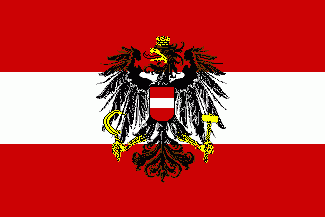 Editor’s Note:
Editor’s Note:
The following text is a transcript of Jonathan Bowden’s lecture on Martin Heidegger at the 6th New Right Meeting in London on February 18, 2006. You can listen at YouTube here [2]. If you can make out the passage marked unintelligible, please post a comment below.
In truth, this is not one of Jonathan’s best lectures, but even Heidegger experts would be hard pressed to deliver a good introduction in one hour. It is, in particular, highly misleading to characterize Heidegger as an “essentialist.” But Jonathan means simply the belief that reality that exists “outside” and “before” the existence of the mind. And indeed, Heidegger so strongly believed this that he rejected even Platonic essentialism as implicitly subjectivist, because it posiys that ultimate reality consists of entities that satisfy our quest for certainty, thus conceiving the world based on the needs of the human subject.
Martin Heidegger: this talk in some respects is incredibly difficult, because I remember when the elitist Jewish academic George Steiner was asked to do the Fontana Modern Masters on Heidegger, it was because a long series of Oxbridge academics couldn’t do it. They basically couldn’t reduce the extraordinary complexity of, in particular this work, Being and Time, to 100 pages. Because Fontana Modern Masters, as you know, is a students’ sort of “cheat” primer, the sort of thing that people look up on the internet now. And to reduce Heidegger to that is slightly ridiculous. But you also have to provide a sort of middling and upper-middling foregrounding for people to come into the theory anyway, otherwise they’ll be at sea.
Now, what people do when they write Times Literary Supplement, never mind Sunday Times, articles about somebody like Heidegger is they basically talk about his politics; they talk about whether or not he had a mistress; they talk about his early Catholicism; they talk about wraparound and biographical matters, because the theory is amongst the most difficult metaphysical theories written in the last century.
Probably Adorno and Sartre on the ultra-Left—both of whom cross over with certain areas that Heidegger was concerned with, Sartre, biographically never mind anything else—and Heidegger are amongst the most complicated theorists that one can ever imagine. So, before we start on this talk we have to look at what’s happened to Western philosophy in the last hundred years.
Now, for those who read their philosophy at tertiary level in our universities—and tertiary education has been so degraded in many respects through egalitarian discourse that it’s almost meaningless, but for those who do—they know that there are two great clusters in Western academic philosophy: so-called Anglo-American philosophy, and so-called, but essentially actual, European and Continental philosophy.
We grow up, whether we like it or not—because even the Tony Blairs of this world are actually subliminally influenced by these ideas—in an empirical, naturalist, factually-oriented, slightly anti-theoretical current which comes from our alleged and soi-disant Enlightenment. And we come out of essentially an anti-theoretical and an anti-metaphysical discourse which is why something as unbelievably outré as this is literally outside of British and Anglo-concentric thinking in all sorts of ways. For a long time it was said that Being and Time would be untranslatable, and it wasn’t translated until ’62. And don’t forget, the book was written in the ’20s. And it’s translated by two academics, so it’s sort of two-for-one, with Blackwells, a sort of generalized Oxbridge publisher.
Now, what is Continental philosophy trying to do, and why does Anglo-American philosophy think it’s meaningless? Because these are questions that can’t be answered and therefore shouldn’t even be asked, in a Bertrand Russell and Wittgensteinian way of looking at things. Basically, Heidegger is trying, through semi-atheistic and allegedly secular discourse, to arrive at certain ultimate spiritual truths grounded in pure philosophy, and in pure thinking about thinking, even thinking about the thinking of thinking. And he is trying to prove certain cardinal things that, in many ways, gifted adolescents ask, but often as they atrophy into adulthood and early maturity they fall away from. Most people ask, “What’s life for?,” “Is there a God?,” “Is there ultimate purpose?,” “What is death about?,” “Will anything happen to me that can be acknowledged as existing before I die that impinges upon this cardinal event?,” “Why are most people completely oblivious to these issues and are terrified and often in a state of mild anxiety if they come up in general discourse?”
Now, Heidegger is trying to reach real conclusions, grounded philosophical conclusions, about these cardinal matters. Because he believed that Western metaphysics—and this is an incredibly arrogant statement really—that Western metaphysics had gone wrong for 2500 years of falsity and inauthenticity in relation to the primal nature of Being, which he believed is even a category within the notion of being which he calls Being-in-being.
Now, what’s “Being”? The “science” of Being in abstract philosophy is called ontology, and all of his work is about ontology. Now, this slogan behind me which Troy has kindly put up is, in part, a conceit because it says, “Martin Heidegger and Death’s Ontology.” Well you can’t really have an ontology of death, but you can have an ontology of life. But his whole point is to place life, as understood as concrete Being and as phenomenon, before death.
Heidegger is essentially a religious thinker, but he wants to route theoretical and theological energies through pure intellectuality. Why so? Because it is a way into intellectual understanding in the 20th century. Most of the cardinal ideas of the 20th century impinge upon him. And he was taught phenomenology at university by Edmund Husserl, to whom Being and Time is dedicated. In the sort of epigraph/frontal page he says, “Dedicated to Edmund Husserl in friendship and admiration. Black Forest 8th of April 1926.”
Now, many people, sort of undergraduates, people who go on Channel 4 documentaries, say that Martin Heidegger is an existentialist. And he influenced enormously that school, but in actual fact he is not an existentialist, hence the endless intellectual complication. He is as far removed as that, whilst being tangential to it, as one can possibly imagine. Now, he is a radical essentialist of the most primary and foundational form.
Most of the contemporary theory that’s influenced Western university professors and other intellectuals in the last 30 years is based on a particular type of existentialism which is designed, in a way, to get rid of this sort of material even before they start thinking. The idea is that existence is all there is, and existence foregrounds essence. There is no prior essence, there are no ontological variants which could be said to be true before us. Essentially, there is—put crudely and in Sun editorial terms if you can even describe Heidegger in such cultural proximities—they’re saying that God is not just dead, but was always dead and was always a mistake and even the admission of his existence or partial existence was based on a question that shouldn’t be asked, because it was epistemologically false even in the asking of it.
Epistemology is the science, or way, of understanding how one should think: thinking about thinking, if you like. Because in this type of thinking, before you have a thought you must, rather like a surgeon, make sure your tools are all right in order to operate. So you have to think about the thinking you’re going to initiate before you even start thinking.
Now, most Left-wing ideas are based upon the idea that we’re a tabula rasa, that we’re a sheet of paper, that you can write upon it as you want and as you will; that we’re the product of economics, or that we’re the product of social forces or interconnections of the two; there might be a bit of biology but it’s so mediated through socio-economic concerns that it’s lost sight of. Certainly, there are no prior truths to us and our existence. Hence Sartre’s famous essay which was designed to bring Leftist students, and a whole generation of them, many of whom are prominent in the media now and so on, in the Western world into a particular type of thinking. He wrote an essay called Existentialism is a Humanism because ultimately, in a sense, it is, although paradoxically there have been plenty of Right-wing existentialists.
They believe that existence precedes essence; essence is just an idea, is a ghost, is a spook in the machine, is that which is prior, is that which all modern theory rejected when the modern world replaced the medieval world. And in some respects, although it’s a very crude analysis, Heidegger is a super-charged modern who was a return of radically medieval ways of looking at the world; at meaning; at purpose; at will; and at existence in existence as clarified essence. So, in a way he is trying—scribbling away at this chalet he had, made of wood in the Black Forest— to confirm the existence of God, basically. That’s what he’s trying to do with this enormous amount of theory.
When post-structuralism, so-called, became the cardinal intellectual discourse of our universities, pretty much in the 1980s/1990s and subsequently, those theories are based upon the idea which radicalizes even the existentialist project of the ’50s and ’60s. And this is that there is no essential foundation to meaning. I remember a Marxist university professor I know quite well—he teaches at some upgraded poly which is now called a university in London—Malcolm Evans, who wrote a book about Shakespeare called Signifying Nothing, which is a quote from Macbeth of course, so there’s a clever interweaving of texts going on here. But he basically believes that essentialism is dangerous. Because of course, although your average Socialist Worker Party activist, and there’s few of them left, would even think in these terms, it is a totally rival and totally discontinuous and totally oppositional way of thinking. They believe, they begin with man in his predicament and the only way to get out of that predicament is to change one’s environment which creates the nature of that predicament.
Heidegger’s view is that everything is prior, everything is prior, and death is before you. And death, in accordance with essentially his religious nature, is what life is about. In other words, life is about preparing yourself for inexistence.
Now, one of the sort of comets that goes across this constellation which could be said to be Heidegger is Jean-Paul Sartre who did his thesis in Germany, partly during the Nazi period. Sartre, this rather sort of short-sighted ugly man, stooping around, running about, didn’t seem to know what was going on in Germany at this period. Indeed, there were circles of the Left in post-war France who held it against Sartre that he actually studied in Germany during this period, influenced by these sorts of ideas.
Now, Sartre takes these ideas in another direction. So, he doesn’t have a prior essence; that there are things like Beauty with a big “B,” Justice with a big “J,” Truth with a big “T,” and so on, that exist prior to man. He believes that everything is unknown prior to specific consciousness. But you authenticate yourself and the possibility of Being by confronting nothingness and filling the emptiness with volition, in his case by choosing to be an extreme Leftist. Life is utterly meaningless. But one chooses a course for one’s life and for one’s discourse.
And this led him to myopic apoliticism and moping around in German libraries in the 1930s through to Maoism, essentially, because he basically ended up in a sort of Maoist sect before he died in the 1970s. Something which, because Pol Pot of all people passed through some of those Parisian Salons in the 1970s, listening to people like Kristeva and these other post-structuralist theorists, has rather doomed Sartre in post-war and after his death terms, because you can’t claim existentialism as a humanism when one of your moral pupils turns out to be Pol Pot! That’s been a bit difficult, you see.
But you have this extraordinary radicalism in the examples of these two men: Sartre ends up with Mao (put crudely), and Heidegger ends up with Hitler. Because both of them, if you like, begin thinking cardinally about the values of our civilization which, when you think about it logically, would lead them to some of the most radical conclusions, socially, politically, and ideologically, which are possible.
Because this type of intellectuality—and I’m going to read certain sections of it because there is a pretension always to talking about people like Heidegger without dealing with what we’ll call the hard core; you’ve actually got to look at the material which is written in a sedentary way but is written, in a sense, in accordance with the notion of intellectual fury. It’s a belief that all of life and all of meaning can be revealed through mental processes, which I don’t believe is true, but it’s a heroic attempt to do this.
And this sort of language is virtually a system of thinking which has more relationship with artistic ways of describing things, actually. Because Heidegger’s theory is something that you have to experience. Here is a man dwelling upon ultimate questions of whether there is an essence in an essence, of what it means to be you, or this table, or anything that phenomenologically exists. Or, are there realms above us or beneath us or around us? And, how can you answer a moral question with an affirmative statement?
Wittgenstein’s point in Tractatus and after is that ultimately you can’t answer a morally affirmative statement because to do so is meaningless outside language, and language is all that exists, and language is given even only a partial meaning through context. There’s a famous and funny story of Wittgenstein where he’s ferociously berating an American visiting professor at Cambridge and he says, “You can’t make affirmative moral statements,” and he’s waving a poker in his face. And the university professor replies, “Here’s an affirmative moral statement: don’t wave pokers in the faces of visiting professors.” And Wittgenstein hurls the poker into the fire and storms out of the room in a rant.
But these attempts, abstract and very radical though they are, always, like Icarus in a sense, go up and then come down again. Because, mark my words, every politician and every pundit, no matter how low-level, no matter how 200 times beneath this sort of discourse they are, is actually replicating ideas that have come from somewhere and are going somewhere. The reason why—you know, you walk around London today—the world is as it is, is ideological in the broadest of senses. Because a man who has any sort of belief becomes the equivalent of 50 men in action. And Heidegger was a man whose action was theory in this purely Germanic way.
I met a German intellectual once and he said, “Ah, you’re an intellectual,” and he sits down and he looks right into your eyes and you begin the theory. This is a totally un-British sort of way of behaving because there’s no concept of irony in a way, but this idea that you achieve truth through almost a violence of intellectuality, which in a way Heidegger evinces.
Now let’s read something from Being and Time. Now, Being and Time is divided into two books, essentially. The first one is “An Explanation of the Question of the Meaning of Being; The Necessity, Structure and Priority of the Question of Being.”This is whether we can even talk about the nature of talking about the book. We have, “The Necessity for Explicitly Restating the Question of Being,” we have “The Formal Structure of the Question of Being,” we have “The Ontological Priority of the Question of Being,” and we have “The Ontical Priority of the Question of Being.” That takes him 32 pages before he’s even started. You’ve got to clear away all the refuse in your garden before you start, basically.
Part One is “The Interpretation of Dasein in Terms of Temporality,” that means the interpretations of Being in terms of time, and “The Explication of Time as the Transcendental Horizon for the Question of Being.” Then there’s another section about “Being-in-the-world in General as the Basic State of Dasein.” Then there’s a section on “The Worldhood of the World,” by which he means, “Is the world as we appear?” Can we prove that you are actually there? Because it’s actually very difficult from first principles to prove common sense: that I’m speaking to you, that I’m not speaking to myself, that it’s a vision, that I’m talking about things that are endlessly solipsistic, in pure mental processes without being empirical, because this type of theory believes that empiricism distorts because you go down to matter, and so you must keep it totally at a theoretical level. It’s actually quite difficult to prove the idea that everything isn’t an idea, and that even addressing you in this way is an idea, and so on.
“Being-in-the-World as Being-within and Bringing-one’s-Self to the ‘They’.” This is the idea that one approaches the possibility of semi-existence in another, theoretically, before one gets there. Then we have “Being-in as Such.” Intellectual Germans love these little “as suches” and so on. “Care as the Being of Dasein,” now this is the self-reflexiveness of the possibility of Being in being. What does he mean by “Being in being”? He really means the presence of God in life. Really, deep down, in my view, he never left the Jesuits who trained him intellectually, and his thesis was on Duns Scotus; the idea that everything is, essentially, foregrounded before one gets there, theoretically.

Here’s the second book, Division two. “Dasein and Temporality; Dasein’s Possibility of Being-a-Whole and Being-Towards-Death,” which is the real point, to place man in full understanding of it before death.
Now, there’s always with this sort of theory, possibly a sort of alienation effect. But the way to look at it is there are few moments of profundity in most individual’s lives, but one of them is that period when one is probably pretty conscious that one is waiting for death. And it’s going to happen to all of us, you and me, and in some ways the way to overcome the sort of innate philistinism that exists about this pure, pure theory is to put yourself in that position. Because Heidegger’s work is a man in early life in full consciousness of radical mental gifts, thinking about what it means to die before you get there, and not responding at the level of emotion. Although I believe personally that all theory is physically based and comes out of the emotions as part of one’s physicality, but let’s not intrude my ideas too much.
Another section is “Dasein’s Attestation of an Authentic Potentiality-for-Being, and Resoluteness.” Another section is “Dasein’s Authentic Potentiality-for-Being-a-Whole, and Temporality as the Ontological Meaning of Care.” Then there’s a section on “Temporality and Everydayness.” By this time we’ve got up to page 421, by the way. Then there’s a section on “Temporality and Historicality,” and then there’s a section on “Temporality and Within-Time-ness as the Source of the Ordinary Conception of Time.” Then there’s some dealings with other theorists who are rather brushed away at the end, Hegel in particular.
The last section of all, which is Section 83, around pages 436–486, is “The existential-temporal analysis of Dasein, and the question of fundamental ontology as to the meaning of Being in general.” This is the moment when he wants to place man before death, self-aware of the nature of authentic existence.
As a critique of all this sort of material Adorno—in some respects his chief ideological nemesis on the other side—wrote a book called The Jargon of Authenticity which is an attack upon this type of thinking. Adorno is one of the key thinkers in what’s called Western Marxism and the Frankfurt School.
Now, here is a section on death, because it’s all essentially about death. “Underlying this biological-ontical exploration of death,” that just means the biological exploration of death, “is a problematic that is ontological.” That concerns the science of Being. “We still have to ask how the ontological essence of death is defined in terms of that of life. In a certain way, this has always been decided already in the ontical investigation of death. Such investigations operate with preliminary conceptions of life and death, which have been more or less clarified.” That’s in the last 290 pages which I’ll forebear from reading out. “These preliminary conceptions need to be sketched out by the ontology of Dasein.” Which is Being in being. “Within the ontology of Dasein, which is superordinate to an ontology of life, the existential analysis of death is, in turn, subordinate to a characterization of Dasein’s basic state. The ending of that which lives we have called ‘perishing.’ Dasein too ‘has’ its death, of the kind appropriate to anything that lives.” Basically he’s asking here, does what traditionalist orders have called the soul survive death? “And it has it, not in ontical isolation, but as codetermined by its primordial kind of Being. In so far as this is the case, Dasein too can end without authentically dying, though on the other hand, qua Dasein, it does not simply perish. We designate this intermediate phenomenon as its ‘demise.’” Then there’s a large footnote which I’ll forebear from going into because it’s printed in point 6, I think. “Let the term ‘dying’ stand for that way of Being in which Dasein is towards its death.” Auxiliary footnote. “Accordingly we must say that Dasein never perishes. Dasein, however, can demise only as long as it is dying.” So, he’s talking about the death of the concept of the soul which is self-aware of the possibility of that moment. “Medical and biological investigation into “demising” can obtain results which may even become significant ontologically if the basic orientation for an existential interpretation of death has been made secure.” Ah ha! “Or must sickness and death in general—even from a medical point of view,” Notice: “medical point of view.” Physical stuff which we keep out of sight. “Be primarily conceived as existential phenomena?”
The first thing that strikes you about this is his attitude towards death. You walk round a death ward in a hospital—you know they’re all about to give out—most people’s response is physical and emotional, the one and the other. He regards that as bourgeois deviation; even as filth. Always keep your theory before you because that’s how you apprise the nature of that which is real as against that which is mere appearance, and that which is governed by dread.
In the 1960s the counter-culture, that had many tendencies which ultimately tended overwhelmingly to the Left regardless of this, had the notion that life was not as it should be or could be. That there needed to be a spiritual dimension to human beings that had been lost sight of given the collapse of the Christian religion. And I take it as unarguable that in our civilization in the last hundred years, in accordance with what it once was, in the West largely, with the odd exception, individual and group, the Christian religion has collapsed. And it’s collapsed amongst the most advanced thinkers of our civilization and racial or ethnic group from early in the 19th century. Or at least they were aware of the possibility of its mass collapse long before it became a sociological phenomenon. This is why this theory, which ultimately has had much more impact in theology than it has in philosophy, has been put in this particular way.
When the Renaissance occurred in our thinking one of the great criticisms of the philosophical schools that preceded it, of which Duns Scotus was an accredited master, was that they were dealing with things that could never be proved at this level of reality, even theoretically. And the slogan that’s used is that they were debating the number of angels that could dance on the head of a pin. And it was all utterly pointless, and we had to get away from all that.
Now, Heidegger wants to go back there, up to a point, but in actual fact he wants to go even further back. He wants to go back to the pre-Socratics, he wants to go back to the Sophists, he wants to go back to the original and primary Greek thinkers that begin the process two-and-a-half thousand years ago, which is why Nietzsche obsessed him. Because, if you like, Nietzsche stands half way between this radical essentialist/quasi-religious thinking, that there is before you nothing but God, and God in all and God for all, and you’re part of Him. Which, if you sacralize this language, begins to make sense of what Being is, what Being-in-being is, what Being-in-being before all being is, and so on. It’s, if you like, a re-rooted theological language use. There’s that position. And prior traditionalists who have Right-wing views largely accord philosophically and psychologically with this area.
Nietzsche, who’s a figure who obsessed Heidegger of course, and who has this enormous theoretical explosion at the end of the 19th century, just preceding the emergence of people like Husserl, Jaspers and Heidegger, in early 20th century Germanic thinking at a high philosophical level. Don’t forget, Anglo-American philosophy almost denies the possibility of metaphysics. Bertrand Russell would say, if he were sat at the back, which is a bit difficult considering he’s been a corpse for about thirty years, “It’s all meaningless. It’s an interesting talk but it’s about things that can’t be proved at any level and is therefore pointless. Because your view is as good as his, as good as so and so’s. The only difference is people can put it better, or worse. But there can be no grounded truth that I can grasp and put social practice and purpose to.”
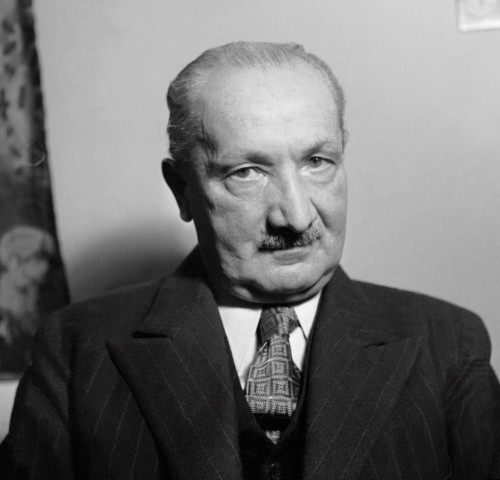
Now, Nietzsche stands halfway between the Left existentialist view, that there’s nothing prior, that, put very simply, we make it up as we go along.
Baudrillard, a French intellectual, wrote a book in the 1990s saying that the first Gulf war was just a computer game; it didn’t happen. Didn’t happen, it was just a discourse. All those cluster bombs and stealth bombs and so on, it was just a fantasy in a televisual age: one man’s discourse, you see?
In an age of extreme relativism, which is the almost opposite of this absolutist theory, totalitarian theory, which is actually, mentally what it is, we see the division between what exists now and the reasons for some of the very controversial, certainly in the mainstream, political choices that Heidegger made in the middle of his life in Germany in the thirties.
Now, Nietzsche’s position is that there is a prior, there is an essence, but Nietzsche is a partial to semi-absolute existential thinker. Because Nietzsche’s contribution to modernity and to modern intellectual thinking is there may be things which may be prior, but we don’t know what they are, and we have to test them through struggle, through life, through will and purposiveness, and various levels of what he called Will to Power which he believed was the basis of all lived existence.
So, Nietzsche says God is dead partly to say he’s a militant atheist but partly to say that the idea of God in the minds of men has died, which means that theoretically it may not have completely died but is in a point of collapse. Because the point is to test and to rearrange, and you put up a view and I will attack it because life is struggle. And in that struggle comes out the possibility of meaning. Nietzsche would say, “There is a truth but I don’t know it yet.” There is a degree to which ontological circumstances cannot be proved but are not rendered prior meaningless, which is why Nietzsche approaches nihilism, the belief that there is no purpose and no values and no constraints and no morals that aren’t purely human, and that there is nothing outside. Which, of course, makes it very difficult to run any sort of a civilization because there are no lines.
And Nietzsche stands halfway between what you might call this existential Leftist praxis and Heidegger. Nietzsche’s become extremely fashionable on the Left in the last thirty years and there’s lots of post-modernist books by people like Deleuze and Guattari, and these sorts of people, who love the element of Nietzsche that tears down—“I come as a destroyer!”—because in order to create you’ve got to destroy first, you’ve got to level off a bit. There’s ruins around you, so you give them a bit of a push.
All of Nietzsche’s thinking before Zarathustra, when he begins to vouchsafe his own view, if you like, is largely a tearing down: a tearing down of the normative nature of ethics in The Genealogy of Morals; tearing down of the idea of truth itself; an erection of science in works like The Dawn or The Joyful Wisdom/The Gay Science; and then a tearing down of the idea of science; a playing up of certain Darwinian and evolutionary ideas which Nietzsche’s actually quite suspicious of because, he doesn’t think that life and circumstances are linear at all, he believes they’re circular and everything that was comes back again. He thinks that Darwinists are cretinous materialists and shallow optimists. Look at people around you. Are they progressing and moving upwards or are they just dullards led by a few people at the top who manipulate them?
Now, Heidegger made a radical, possibly the most radical, choice philosophically and politically in the century that’s just passed. Admittedly, he was living in Germany at a time when, if the Left-liberal consensus would have it, the most controversial regime in the 20th century came to power. Now, if you were in other races or in other societies you would actually refute that, you’d say that Stalin’s or Lenin’s or Mao’s or various other regimes were more important. You could argue that the most important regime in the 20th century is the American one. But put all that on another table for today.
Heidegger decided in 1933 to join the Nazi Party, to join the National Socialist German Workers Party and gave lectures for a year in his university in full Nazi uniform;[1] and was involved with all of the party Gauleiters and other figures in his area to the shock and horror and consternation of much of the academic elite that he was associated with. And don’t forget that Heidegger did this for purely speculative and theoretical reasons. Heidegger had no concern with doctrines of race, no concerns with doctrines of conspiracy, no concerns with politics at all. Politics was irrelevant in relation to placing man before death, which is what life was about. And what he loved about this movement was that he thought it was a primordial movement that was bringing back, almost in an occultistic way, the partiality towards death, and in some ways it was bringing back the ancient world with modern technology. That’s why he reached out to it.
Now, he regarded democracy, just like middle-brow secular humanism, as a deviation. Because in a sense his nature is so primordially prior and religious that he considers almost all normal life to be irrelevant: family, having a good time, pleasure, pleasure as a principle for life, which in liberal theory is cardinal. The American constitution talks about liberty, talks about property, talks about happiness. Heidegger doesn’t think the purpose of life is happiness; the purpose of life is death and facing ontology. But he doesn’t put it in the vocabulary that you must fall before the one who is on the cross and who bleeds for us because, in a sense, Heidegger just increasingly sees those as forms of metaphysics for metaphysics, stuff that needs to be put out of the way so that one can concentrate on the cardinal things of life, death, spirituality, and the possible existence of God.
“God”, as he told Paul Celan when they met in ’67, “has always been with me.” Celan is interesting of course, a Jewish poet who wrote in German for which he was condemned by his own group and converted to Catholicism because of Heidegger’s influence. And that was not a sectarian influence, because Heidegger was totally uninterested in what sect people were in, and so on. These were all forms that have no importance.
And in some ways there’s a great paradox, because Heidegger’s thinking is so purely, transcendently extreme that he’s one of the few figures where the pagan/Christian split in our civility doesn’t really mean anything to him. This is one of the things that interests me very much about him. With this Right-wing group, for example, a few Christians turned up early, they went, and it’s largely pagan in orientation. In the New Right in Europe, and so on, you have this very great split between the two. Heidegger’s almost totally unconcerned with those things because the forms that people worship Being in being through are incidental to placing man before ontological prerequisites.
His view is that you base life and society upon the profound thinking that will impinge upon a man of full consciousness, not [unintelligible] debilitated, before his moment of death. And that’s why he joined the Nazi Party. That’s why virtually no one could understand why he’d joined it, because he was totally sort of unorthodox in ideological terms because he had very little interest in that.
After a year he realized that: 1. Put crudely, they didn’t understand what he was on about. 2. That he was having to make political decisions in the university, the library, its use and so on that he didn’t agree with. And he fell away. He left the Party then[2] and continued to teach in the university until 1945. In ’45 he was proscribed by the de-nazification tribunals that were set up in the Western Allied zones. Now, he was forbidden from teaching in post-war Germany even though all sorts of people had him as a guest lecturer, so they used to get round it that way. And you have this strange situation where he became a sort of moral and spiritual leper in post-war Germany, and yet he was extremely respected. So Dr. Heidegger, Professor Heidegger, was everywhere. But at the same time he didn’t even have a university post.
And there’s all sorts of interesting things because Husserl taught him, and because Husserl was a Jew he was banned from the university library, but after the war Heidegger was banned from the library. And Jaspers wrote to educational authorities in Germany saying he shouldn’t be given a post. So you have all of this as well.
There was a play a couple of weeks ago on the BBC by John Banville, an Irish writer, about Heidegger that was very interesting. And it’s a dramatization, because all dramatists are interested in dialectic. They’re interested in two minds if it’s a theoretical play of any sort, two minds coming together that disagree, and the tension and the charge and the flow of energy that occurs between those two minds, and whether you can make a narrative out of it that can be listened to from beginning to end. And it’s this talk in his hut in the Black Forest.
Because, very interestingly, there is almost inevitably a monastic element to Heidegger. Heidegger is into the woods in primal inner Germany. To sit there in the middle of this forest and dwell upon death. And write a book of 450 pages of—to certain Anglo-Saxon minds—sheer intellectual torture, virtually, in order to get nearer to the truth that is the truth that is the truth, that will not set you free but release you to die with some dignity. Because that’s the only truth that matters. And there’s a sort of divine element to it in a way because it’s so near to the inexpressible.
Artistically, of course in a blowback sense, it’s had an enormous influence on novelists in Germany like Hermann Broch, who wrote The Death of Virgil, and wrote a book called The Sleepwalkers, and so on. And this extraordinary capacity for intellectual abstraction that many German writers have, that begin with a relatively straightforward narrative and then lurch off into ultimate speculative questions, is very much influenced by this type of theory.
But I don’t think people who are illiberal can understand the shock in liberal intellectual elitist circles of a man like Heidegger joining the Nazi party. It is actually emotionally slightly difficult to describe it. From a sort of BBC view of culture it is the worst thing, and not just the worst thing but beyond the worst, that one could do. This man of supreme intellectual gifts dwelling alone in his Shavian hut in the woods dwelling on the ontology of death in life in death in life in death in life—do you see what I mean?—joins, what they considered to be, a barbarous wrecking crew. And they’re appalled, they’re utterly morally appalled. And since the war people have not really known what to do with Heidegger at all.

And because, in a sense, his theory is an attempt to bring back a different version of the West’s civilization, most people who were on the side politically that he associated with, albeit only for a period, didn’t know how to make use of him either, in a strange sort of way. That’s why he’s this sort of illisible figure. It’s noticeable in Tomislav Sunic’s book on the New Right, for instance, Heidegger in a way can’t be integrated. It’s a sort of cigarette on the paper that burns through to the other side. He really is in a zone on his own.
And what’s he trying to do? He’s trying to see whether human beings can live authentically. There’s a moment in Nietzsche’s letters early on in his theoretical course/development/prognosis after the first text, Birth of Tragedy, when he describes seeing a goatherd killing a goat on a hill—I think it’s in Italy—and it’s what James Joyce would call an epiphany. It’s a moment of total, in his terms, authentication and realization. It’s a poetic moment. It’s what certain natures call a perfect moment. A moment that certain consciousnesses will look at before they die as the one moment that was perfect: the sky, and the goat, and the man, and the soil, and the sun. And, essentially, it’s a religious moment; it’s a sort of cosmotheist moment, in a way.
And Heidegger’s point is to get people to experience such moments, which is why he writes this enormous theory to try and intellectually prepare people for the possibility of having such moments. Which is why, of course, when people try and stimulate themselves to have such moments. They chant; they sing; they starve themselves; they go without; they live ascetically; they do things to alter consciousness. In a sense he just deals with pure consciousness because he doesn’t, almost, relate to the physical level at all.
But it is an attempt to go back to what many Western and Indo-European theorists have believed was cardinal at the beginning of Greek culture. It’s Nietzsche’s view and it’s other people’s view that the Greek tragedians—the great three, Aeschylus, Sophocles and Euripides—that there is a “decadence,” in a sense.
Aeschylus is the most hieratic, the most removed from everyday, the most transcendental, the most ur-ascending.
Sophocles is not a humanist by any means—there’s the matter of the Theban plays, of course—but it’s a step down from that sense of mystery, that sense of sheer awe. We now live in a society without any sense of the sacred at all, as de Benoist has pointed out. It’s virtually void.
And a level down in this trajectory involving the Greek tragic writers is Euripides. He’s hardly writing soap opera, but the gods and the goddesses are seen almost, if not level with human beings, then as superhumans who are just a couple of levels up. But they relate to each other, they fight with each other, they make love to each other, and all this sort of thing, in a way which is recognizably humanesque.
And, in a way, you could metaphoracizse it, because with theory like this that’s all you really can do, certainly in a talk of this nature. Those prior moments when Aeschylus looks at the divine—because don’t forget Western theatre begins with religious ritual and gradually separates itself out—it begins with a monologue, and then Aeschylus has the idea this is going on a bit too long, so we’ll split it and we’ll have a duologue, and the two consciousnesses talk to each other. And in that you have the tension with which you can sustain drama in our culture, in any culture.
Now, in this theatricalization of this meeting in the hut in the woods where he wrote Being and Time and where he wrote other books on Greek tragedy and on Nietzsche, Celan and Heidegger have this talk. And this is Banville dreaming. But this type of theory is actually quite close to forms of artistic creation; forms of higher, non-entertainment based spiritual creation in art forms. And Celan says, “Why did you join the Nazi Party?” And Heidegger replies, “Because they were the one movement of the 20th century that, in my terms, had a tragic view of life. That had a view of life which is actually the motif and the inner essence—Dasein—of the Greek tragedians taken up to date two and a half thousand years later.” And I think that’s essentially a truthful statement.
He gave an interview to the Spiegel magazine after his death, in the sense that it was recorded before his death but could only be published as part of his will and settlement after his demise. I think it was published about three, four weeks after he died. And they ask him, because it was a very adversarial interview while he was alive, post-dated as I say, about why he’d joined, why he did this, why he did that, and so on. And in actual fact there’s lots of evasion and attempts at exculpation and bringing in all the usual things, and even though political correctness wasn’t a buzzword then, he’s in some ways playing games. He’s like a politician on the defensive.
But in actual fact, as often with art in my view, you’ve got to cut to the truth suddenly through all sorts of layers, even if the person never said it, it can actually illuminate because it crystallizes in a form the value of something. And when he says to Celan, with no one there, in this fantasy. Because Celan didn’t go and see him in that hut for nothing, just so he could put his name in Heidegger’s signature book, “I’ve been up to the professor’s lodge.” People at this sort of level don’t do those sorts of things. He wanted to know why, as George Steiner said, one of, if not the most, advanced theoretical minds of the Western civilization in the 20th century adopted this particular course.
And he did it because he believed that you cannot have a society where death has no meaning, because life has no meaning. And you cannot have a society which bases itself upon the absence of the religious urge, however you define that urge and whatever system you use. Because if you do the reverse you will end up with a society which has two values beyond subsistence. And that could be seen in the title of a grubby play produced in London a couple of years ago called Shopping and Fornication. But that is all that life is, if you do not have spiritual levels based upon that.
People will always be completely divided about the forms and the language that they use to talk about cardinal matters. But in a way, in a quite moving way really, Heidegger is attempting to get people to face in early modernity what it means to have a civilization and, not to be human, but to live with profound and real meaning. There’s no doubt that this theoretical postulation and this extreme abstraction is quite alien to certain elements of the Western civilization, certainly our own quadrant of it during the last couple of hundred years. But it is an attempt, not to aestheticize life, but to place life, ultimately, at the service of God, even and most especially for people who either don’t believe in him or can only approach such numinence through endless tiers of theory.
Thank you very much!
Notes
[1] Heidegger was not a member of the SA or SS. Therefore, he did not have a “Nazi uniform.”—Ed.
[2] Heidegger resigned from the Rectorate but did not resign from the party. He remained a member until the end in 1945.



 La
La Les rapports successifs du STOA et d’IC 2000 révèlent donc au monde l’accord secret UKUSA (United Kingdom + United States of America). Celui-ci date cependant de 1947, tout en étant la prolongation de la fameuse Charte de l’Atlantique signée par Churchill et Roosevelt en 1941. Chronologiquement, l’accord secret UKUSA précède donc la guerre froide et se forge avant le fameux coup de Prague qui fait basculer, en 1948, la Tchécoslovaquie dans le camp communiste; celui-ci acquiert ainsi l’espace hautement stratégique qu’est le “quadrilatère bohémien” qui avait procuré tant d’atouts à Hitler suite aux accords de Munich de 1938. Il précède aussi l’existence de l’Etat d’Israël (né également en 1948). Aux deux puissances fondatrices, le Royaume-Uni et les Etats-Unis, se joignent la Canada, l’Australie et la Nouvelle-Zélande puis, progressivement, en tant que “cercle extérieur”, la Norvège, le Danemark, l’Allemagne (en tant que pays occupé et non entièrement souverain) et la Turquie. Le GCHQ britannique surveille l’Afrique et l’Europe (jusqu’à l’Oural), le Canada surveille, quant à lui, la zone arctique. Le personnel qui travaille au service de ce système d’espionnage est soumis à une discipline de fer et doit garder pendant toute sa vie les secrets qu’il a appris pendant ses années de service. Ces membres du personnel sont endoctrinés et ré-endoctrinés (si la perspective change, si, à l’instar du scénario imaginé par Orwell dans son 1984, l’ennemi n’est plus, tout d’un coup, l’Eurasia mais devient, en un tourne-main, l’Eastasia...). En 1995, aucun gouvernement n’a reconnu publiquement l’existence du réseau UKUSA. Rien n’a transparu. Nous pouvons donc parler du “gouvernement profond” de la planète,
Les rapports successifs du STOA et d’IC 2000 révèlent donc au monde l’accord secret UKUSA (United Kingdom + United States of America). Celui-ci date cependant de 1947, tout en étant la prolongation de la fameuse Charte de l’Atlantique signée par Churchill et Roosevelt en 1941. Chronologiquement, l’accord secret UKUSA précède donc la guerre froide et se forge avant le fameux coup de Prague qui fait basculer, en 1948, la Tchécoslovaquie dans le camp communiste; celui-ci acquiert ainsi l’espace hautement stratégique qu’est le “quadrilatère bohémien” qui avait procuré tant d’atouts à Hitler suite aux accords de Munich de 1938. Il précède aussi l’existence de l’Etat d’Israël (né également en 1948). Aux deux puissances fondatrices, le Royaume-Uni et les Etats-Unis, se joignent la Canada, l’Australie et la Nouvelle-Zélande puis, progressivement, en tant que “cercle extérieur”, la Norvège, le Danemark, l’Allemagne (en tant que pays occupé et non entièrement souverain) et la Turquie. Le GCHQ britannique surveille l’Afrique et l’Europe (jusqu’à l’Oural), le Canada surveille, quant à lui, la zone arctique. Le personnel qui travaille au service de ce système d’espionnage est soumis à une discipline de fer et doit garder pendant toute sa vie les secrets qu’il a appris pendant ses années de service. Ces membres du personnel sont endoctrinés et ré-endoctrinés (si la perspective change, si, à l’instar du scénario imaginé par Orwell dans son 1984, l’ennemi n’est plus, tout d’un coup, l’Eurasia mais devient, en un tourne-main, l’Eastasia...). En 1995, aucun gouvernement n’a reconnu publiquement l’existence du réseau UKUSA. Rien n’a transparu. Nous pouvons donc parler du “gouvernement profond” de la planète,
 Il y a ensuite l’affaire dite “Wikileaks”, médiatisée surtout à partir d’octobre 2010 quand d’importants organes de presse comme Le Monde, Der Spiegel, The Guardian, le New York Times et El Pais publient des extrtaits des télégrammes, dépêches et rapports d’ambassades américaines pompés par le lanceur d’alerte Julian Assange. Celui-ci divulguait des documents confidentiels depuis 2006. Il disposerait de 250.000 télégrammes diplomatiques américains rédigés entre mars 2004 et mars 2010. Obama a tenté d’allumer des contre-feux pour éviter le scandale, en vain (du moins provisoirement, les Européens ont la mémoire si courte...). Les révélations dues au hacker Assange portent essentiellement sur le travail des ambassades américaines et dévoilent la vision sans fard que jettent les Etats-Unis sur leurs propres “alliés”. Bornons-nous à glaner quelques perles qui concernent la France. Sarkozy est “très bien” parce qu’il “possède une expérience relativement limitée des affaires étrangères”, parce qu’il “est instinctivement pro-américain et pro-israélien”; par ailleurs, il aurait “une position ferme à l’égard de l’Iran” et “accepterait le principe d’un front uni contre la Russie”; “son réseau de relations personnelles” serait “moindre avec les leaders africains que celui de Chirac”; “il ménagera moins la Russie et la Chine au nom de la Realpolitik que Chirac”. Ces deux dernières caractéristiques prêtées à l’ex-président français indiquent clairement un espoir américain de voir disparaître définitivement la politique gaullienne. C’est au fond l’objectif des Américains depuis Roosevelt, en dépit de l’alliance officielle entre gaullistes et Anglo-Saxons... Continuons à éplucher les rapports qui ont Sarkozy pour objet: celui-ci sera un bon président de France car “il acceptera des mesures sortant du cadre des Nations Unies”. Cette remarque montre que les Etats-Unis abandonnent le projet mondialiste et “nations-uniste” de Roosevelt car il ne va plus nécessairement dans le sens voulu par Washington. Il s’agit aussi d’un rejet des critères usuels de la diplomatie et la fin non seulement des stratégies gaulliennes, mais de tout espoir de voir se forger et se consolider un “Axe Paris-Berlin-Moscou”. Sarkozy devra toutefois “accepter la Turquie dans l’Union Européenne”. Son absence de “réalpolitisme” à l’endroit de la Russie et de la Chine permettra à terme “un front uni occidental au conseil de sécurité de l’ONU” (sinon il n’y aurait pas de majorité). Sarkozy “rompt avec les politiques traditionnelles de la France” et “sera un multiplicateur de force pour les intérêts américains en politique étrangère”.
Il y a ensuite l’affaire dite “Wikileaks”, médiatisée surtout à partir d’octobre 2010 quand d’importants organes de presse comme Le Monde, Der Spiegel, The Guardian, le New York Times et El Pais publient des extrtaits des télégrammes, dépêches et rapports d’ambassades américaines pompés par le lanceur d’alerte Julian Assange. Celui-ci divulguait des documents confidentiels depuis 2006. Il disposerait de 250.000 télégrammes diplomatiques américains rédigés entre mars 2004 et mars 2010. Obama a tenté d’allumer des contre-feux pour éviter le scandale, en vain (du moins provisoirement, les Européens ont la mémoire si courte...). Les révélations dues au hacker Assange portent essentiellement sur le travail des ambassades américaines et dévoilent la vision sans fard que jettent les Etats-Unis sur leurs propres “alliés”. Bornons-nous à glaner quelques perles qui concernent la France. Sarkozy est “très bien” parce qu’il “possède une expérience relativement limitée des affaires étrangères”, parce qu’il “est instinctivement pro-américain et pro-israélien”; par ailleurs, il aurait “une position ferme à l’égard de l’Iran” et “accepterait le principe d’un front uni contre la Russie”; “son réseau de relations personnelles” serait “moindre avec les leaders africains que celui de Chirac”; “il ménagera moins la Russie et la Chine au nom de la Realpolitik que Chirac”. Ces deux dernières caractéristiques prêtées à l’ex-président français indiquent clairement un espoir américain de voir disparaître définitivement la politique gaullienne. C’est au fond l’objectif des Américains depuis Roosevelt, en dépit de l’alliance officielle entre gaullistes et Anglo-Saxons... Continuons à éplucher les rapports qui ont Sarkozy pour objet: celui-ci sera un bon président de France car “il acceptera des mesures sortant du cadre des Nations Unies”. Cette remarque montre que les Etats-Unis abandonnent le projet mondialiste et “nations-uniste” de Roosevelt car il ne va plus nécessairement dans le sens voulu par Washington. Il s’agit aussi d’un rejet des critères usuels de la diplomatie et la fin non seulement des stratégies gaulliennes, mais de tout espoir de voir se forger et se consolider un “Axe Paris-Berlin-Moscou”. Sarkozy devra toutefois “accepter la Turquie dans l’Union Européenne”. Son absence de “réalpolitisme” à l’endroit de la Russie et de la Chine permettra à terme “un front uni occidental au conseil de sécurité de l’ONU” (sinon il n’y aurait pas de majorité). Sarkozy “rompt avec les politiques traditionnelles de la France” et “sera un multiplicateur de force pour les intérêts américains en politique étrangère”. 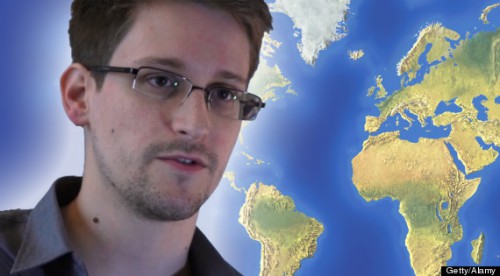
 Viviane Reding, commissaire européenne à la justice, annonce la mise en place d’une “législation solide” pour protéger les données individuelles et les communications entre entreprises de pointe, selon le modèle officiel américain (qui est une illusion, tous les citoyens américains étant étroitement surveillés, non pas directement par des instances étatiques mais par des entreprises privées qui refilent leurs données à la NSA contre monnaie sonnante et trébuchante et passe-droits divers). Le projet de Reding s’avèrera pure gesticulation car, il faut bien le constater, il n’y a aucune cohésion entre les Européens: la Grande-Bretagne, est juge et partie, et n’a pas intérêt à interrompre sa “special relationship” avec Washinton, pour les beaux yeux des Français ou des Allemands, des Espagnols ou des Italiens, tous ex-ennemis à titres divers. La “Nouvelle Europe” (Pologne et Pays Baltes), chantée par les néo-conservateurs de l’entourage des présidents Bush, père et fils, cherche surtout à s’allier aux Américains au nom d’une russophobie anachronique. La Grande-Bretagne avance comme argument majeur pour saboter toute cohésion continentale que “cette affaire ne peut être traitée au niveau européen”. Cette position britannique, exprimée de manière tranchée, a immédiatement provoqué la débandade et aussi, notamment, la reculade de François Hollande. Il n’y aura pas de demande d’explication commune! L’Europe est donc bel et bien incapable de défendre ses citoyens et surtout ses entreprises de pointe. On le savait depuis l’affaire ECHELON et le rapport de Duncan Campbell. Les révélations de Wikileaks et de Snowden n’y changeront rien. L’inféodation à Washington est un dogme intangible pour les eurocrates, l’Europe et la construction européenne (au meilleur sens du terme) dussent-elles en pâtir, en être ruinées.
Viviane Reding, commissaire européenne à la justice, annonce la mise en place d’une “législation solide” pour protéger les données individuelles et les communications entre entreprises de pointe, selon le modèle officiel américain (qui est une illusion, tous les citoyens américains étant étroitement surveillés, non pas directement par des instances étatiques mais par des entreprises privées qui refilent leurs données à la NSA contre monnaie sonnante et trébuchante et passe-droits divers). Le projet de Reding s’avèrera pure gesticulation car, il faut bien le constater, il n’y a aucune cohésion entre les Européens: la Grande-Bretagne, est juge et partie, et n’a pas intérêt à interrompre sa “special relationship” avec Washinton, pour les beaux yeux des Français ou des Allemands, des Espagnols ou des Italiens, tous ex-ennemis à titres divers. La “Nouvelle Europe” (Pologne et Pays Baltes), chantée par les néo-conservateurs de l’entourage des présidents Bush, père et fils, cherche surtout à s’allier aux Américains au nom d’une russophobie anachronique. La Grande-Bretagne avance comme argument majeur pour saboter toute cohésion continentale que “cette affaire ne peut être traitée au niveau européen”. Cette position britannique, exprimée de manière tranchée, a immédiatement provoqué la débandade et aussi, notamment, la reculade de François Hollande. Il n’y aura pas de demande d’explication commune! L’Europe est donc bel et bien incapable de défendre ses citoyens et surtout ses entreprises de pointe. On le savait depuis l’affaire ECHELON et le rapport de Duncan Campbell. Les révélations de Wikileaks et de Snowden n’y changeront rien. L’inféodation à Washington est un dogme intangible pour les eurocrates, l’Europe et la construction européenne (au meilleur sens du terme) dussent-elles en pâtir, en être ruinées. 
 del.icio.us
del.icio.us
 Digg
Digg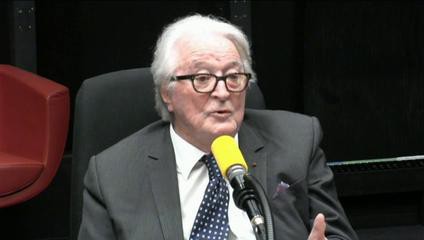
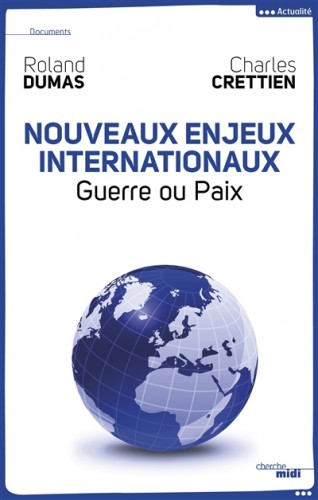 Roland Dumas, born in 1922, belongs to the last generation of great French Statesman who experienced the French – German war that prompted the creation of NATO. Can France and Germany overcome their grievances and lead a new, continental European diplomacy for peace and prosperity for Europe and beyond? The question is tabled by a German who belongs to the first generation of continental Europeans who have not experienced a major conflict on the continent; not yet. The article suggests problems and possible solutions for a French – German initiated partnership for peace in Europe, the Middle East, Africa, and beyond. It is a bold proposal that necessarily has to deal with “red herrings” and touch keystones which would have to be put in place by a new diplomacy of fellow travelers for peace.
Roland Dumas, born in 1922, belongs to the last generation of great French Statesman who experienced the French – German war that prompted the creation of NATO. Can France and Germany overcome their grievances and lead a new, continental European diplomacy for peace and prosperity for Europe and beyond? The question is tabled by a German who belongs to the first generation of continental Europeans who have not experienced a major conflict on the continent; not yet. The article suggests problems and possible solutions for a French – German initiated partnership for peace in Europe, the Middle East, Africa, and beyond. It is a bold proposal that necessarily has to deal with “red herrings” and touch keystones which would have to be put in place by a new diplomacy of fellow travelers for peace.
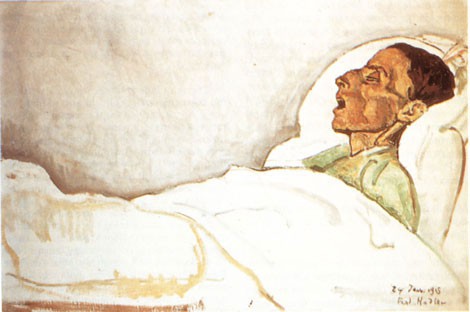


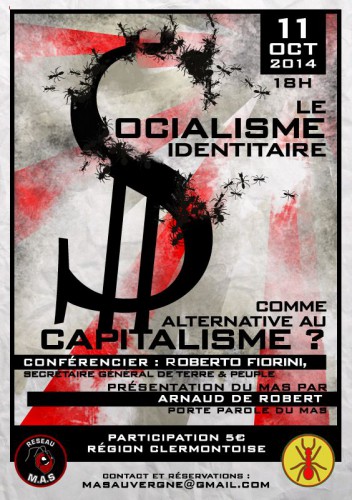









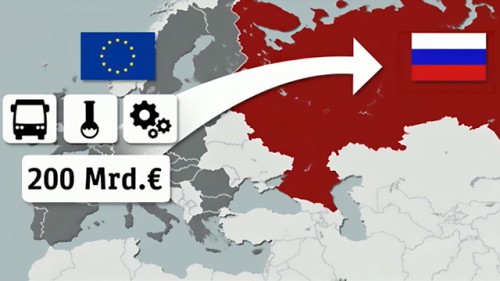
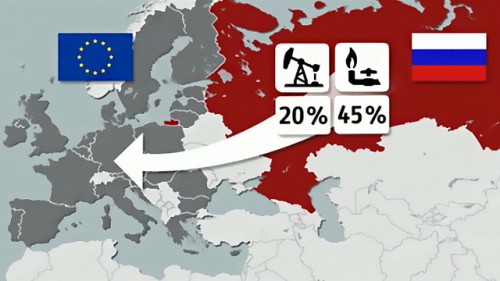
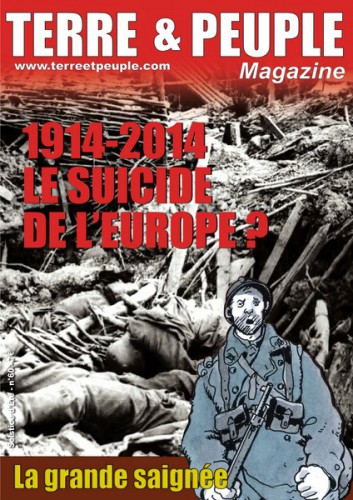
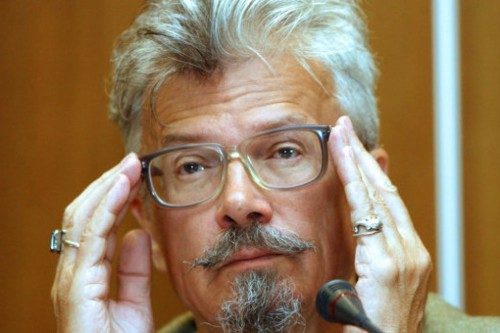



 “
“
 Vattel points out that war as a means to settle disputes “can only serve this purpose if, in the first place, it be conducted by methods which do not leave behind a legacy of hatred and bitterness…”
Vattel points out that war as a means to settle disputes “can only serve this purpose if, in the first place, it be conducted by methods which do not leave behind a legacy of hatred and bitterness…”
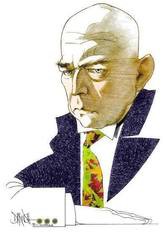 L'opera che più di tutte accompagnò la prima guerra mondiale e che dette il nome alla letteratura della crisi che poi ne seguì, in realtà fu scritta prima del conflitto. Era infatti il 1914, giusto cent'anni fa, quando Oswald Spengler concluse Il tramonto dell'Occidente; poi quel titolo divenne l'epigrafe del dopoguerra e il suo compendio, almeno mitteleuropeo. L'opera vide la luce sul finire della prima guerra mondiale e fu un trionfo di vendite e commenti. Uscì in ritardo per via della guerra, e questo permise a Spengler di rielaborare alcune pagine e aggiungere nuovi particolari. Tuttavia era stata scritta e pensata non alla luce della guerra e del suo esito, ma prima, in uno sguardo epocale alle civiltà del passato e del presente. Per l'avvenire Spengler prevedeva lo scontro finale fra la dittatura del denaro e la civiltà del sangue, del lavoro e del socialismo. Alla fine, vaticinava, la spada trionferà sul denaro perché una potenza può essere rovesciata solo da una potenza.
L'opera che più di tutte accompagnò la prima guerra mondiale e che dette il nome alla letteratura della crisi che poi ne seguì, in realtà fu scritta prima del conflitto. Era infatti il 1914, giusto cent'anni fa, quando Oswald Spengler concluse Il tramonto dell'Occidente; poi quel titolo divenne l'epigrafe del dopoguerra e il suo compendio, almeno mitteleuropeo. L'opera vide la luce sul finire della prima guerra mondiale e fu un trionfo di vendite e commenti. Uscì in ritardo per via della guerra, e questo permise a Spengler di rielaborare alcune pagine e aggiungere nuovi particolari. Tuttavia era stata scritta e pensata non alla luce della guerra e del suo esito, ma prima, in uno sguardo epocale alle civiltà del passato e del presente. Per l'avvenire Spengler prevedeva lo scontro finale fra la dittatura del denaro e la civiltà del sangue, del lavoro e del socialismo. Alla fine, vaticinava, la spada trionferà sul denaro perché una potenza può essere rovesciata solo da una potenza.
